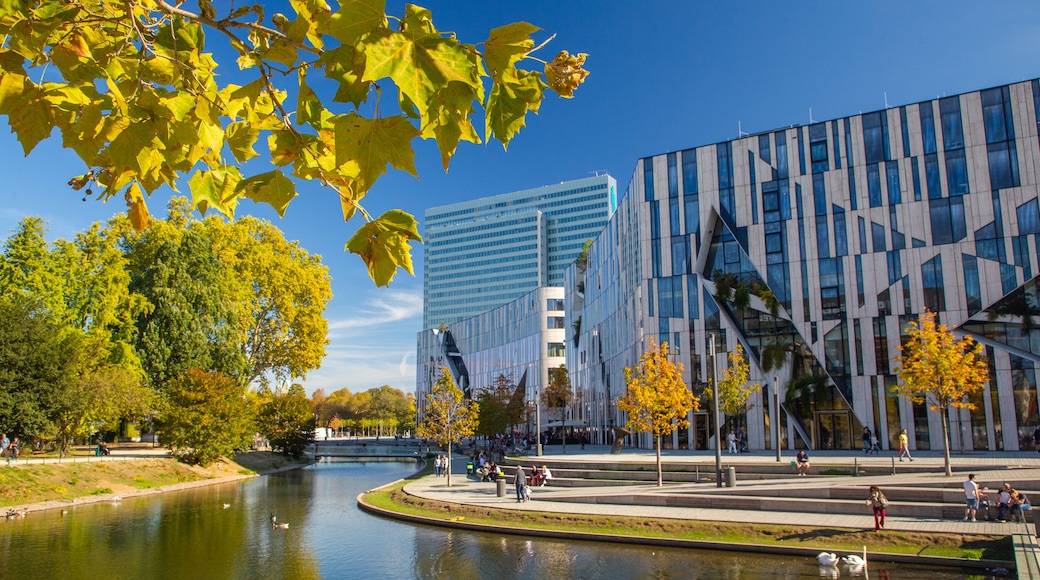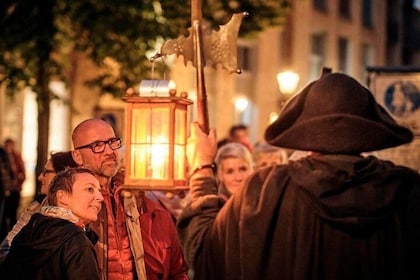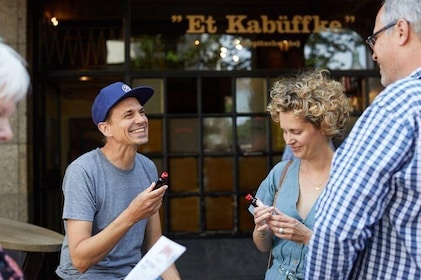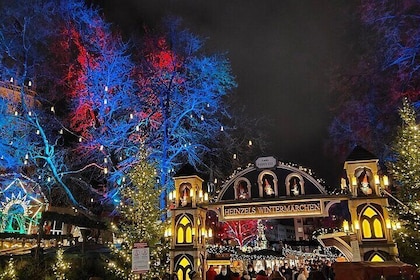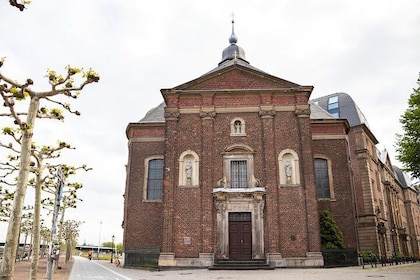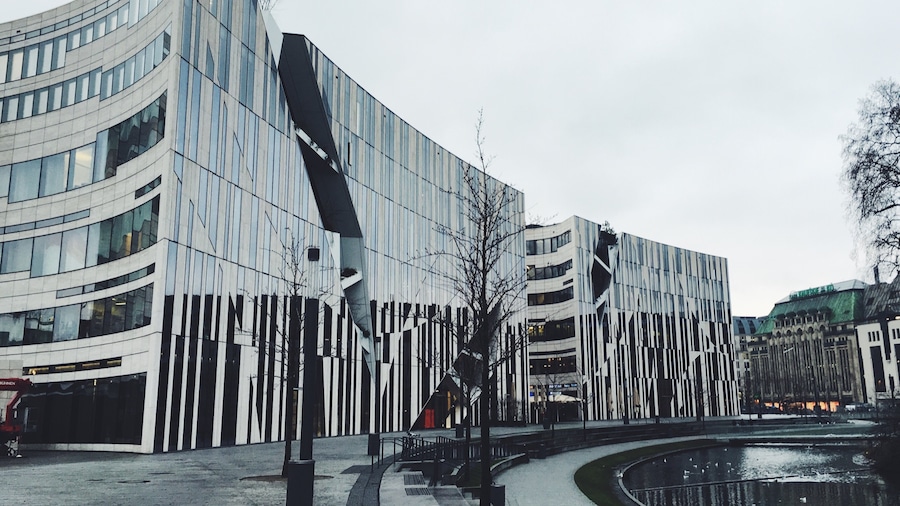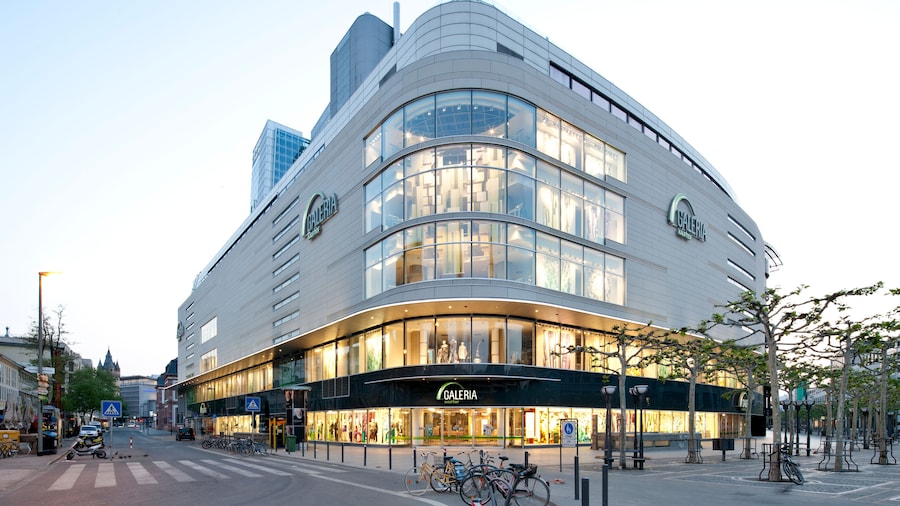At the Hofgarten you can stroll along tree-lined walkways, visit a museum dedicated to the poet Goethe, and watch outdoor performances by jazz, brass, folk, and classical musicians. Dating back to the 16th century, this is one of Germany’s first public parks. It was designed by classical landscaper Maximilian Weyhe. Today, it covers around 68 acres (28 hectares), from the Rhine River to Jacobistrasse.
Nature lovers can enjoy walks along the park’s promenades, some of which are home to centuries-old trees. Relax by the two ponds and watch ducks and swans bobbing on the water. Kids will love playing on the park’s playgrounds. Bring a picnic to eat on the lawns or make use of the barbecue facilities located in the north of the park.
Take time to admire sculptures and monuments by well-known artists. Among these is the Märchenbrunnen fountain by French sculptor Max Blondat. Known as the Fairy Tale Fountain, it portrays three children looking down at three frogs. Other notable pieces include Englishman Henry Moore’s two-part reclining figure, the Roaring Stag by Josef Pallenberg, and Der Mahner (Warning Voice) by Russian sculptor Vadim Sidur.
In the park’s eastern corner you’ll find Schloss Jägerhof. This former hunting palace is now a museum that celebrates the poetry of Goethe. Around 1,000 artifacts, such as photos and manuscripts, provide a chronological timeline of his life’s work. Visit the official Goethe Museum website for the opening hours.
Come to the Hofgarten in the summer months for a program of free outdoor concerts. Performers range from brass bands and jazz musicians to big bands and classical orchestras. Concerts take place on Sundays from May to September. A schedule is available on the Dusseldorf Tourismus website.
Located in Dusseldorf’s city center, the Hofgarten is a short walk from the Old Town (Altstadt) and Rhine Promenade. There is no onsite parking so public transport, such as tram or metro, is a better option.
The garden is open every day of the year.
